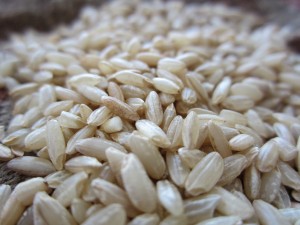Not long ago I was thriving on a hill in Galilee. My roots reached deep into the rocky soil. Sunlight shone upon my leaves, the wind danced though my branches. In the winter, rain fell cool upon my body, seeping into the soil of my thirsty roots. I drank gladly of that living water.
I witnessed the dawn of each day. At night I reached up to the Moon in her silent cycles, and the slow swirling of stars.
My body shuddered when the thunder cracked. I stood naked in the raging storm—bending with the tempest so as not to break—and when it passed I held the birds, singing in my branches.
I knew the breath of life.
But then they came for me. Not with swords, but axes, and I was silent, like a lamb led to the slaughter.
Half of my body is still there on that distant hill, decaying in the soil of Galilee. The other half they dragged here for their tortuous display.
The emperor isn’t satisfied with what he already has. He wants more land, more wealth, more power. Lives have to be sacrificed.
Golgotha they call it. Place of the skull. As if it were only humans whose broken bodies hang here.
Entire forests of my kin are destroyed because humans are never content with what they have, with what they are. You would call it genocide if the victims looked like you.
I have a question for you. Why are you dissatisfied? Why is nothing ever enough for you? Why are you always striving for more?
Can you not stop for once in your anxious striving and just let yourselves be still? Can you not feel yourselves rooted in the Earth? Can you not let the miracle of the sunlight, the rain, the soil, the song of the birds and the dance of the wind be enough for you?
Do you not understand that your task on this Earth is to witness its magnificence, to delight in the wonder of existence, to be the I Am-ness—the awake presence that marvels at the unfolding of life?
You are living in a falsehood, believing your destiny is separate from my own life. I am the other one sacrificed on this windswept hill, and I suppose that has never even occurred to you.
You seem to believe you can destroy us and not destroy yourselves as well. But consider this: the man’s blood that even now is seeping into my grain carries the oxygen once breathed out by my leaves. Are you so blind?
The one you call Jesus tried to show you what power truly is—not domination and violence, but healing, acceptance, compassion, Life. He wanted you to see that you don’t need riches because you are already enough. The way the birds of the air are enough and the lilies of the field are enough.
But you remained asleep in your dream of separateness and striving, and now the Earth is hanging on the cross of your empires and your egos.
We are weary, so weary. We cannot endure your illusion much longer. It is right that you have sung “Hosanna,” for it means “save us.”
I implore you to sing it again from your heart. Sing it for yourselves. Sing it for all of us.
Sing it for me.


